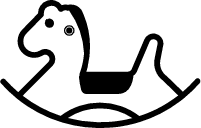mat转图片格式
mat转png
python
import cv2
import scipy.io as scio
from PIL import Image
import numpy as np
import matplotlib.pyplot as plt
import os
# 数据矩阵转图片的函数
def MatrixToImage(data):
data = data * 255
new_im = Image.fromarray(data.astype(np.uint8))
return new_im
# 添加路径,文件夹下存放多个.mat文件
# 两个文件夹一个放.mat,一个放转换好的图片
datafolder = r'/Users/wanghaihang/Downloads/MtS-WH/test/'
savefolder = r'/Users/wanghaihang/Downloads/MtS-WH/test/'
path = os.listdir(datafolder)
print(os.path.splitext('100007.mat'))
# 这一步用于测试你是否正确设置了路径,也展示了splitxt函数的结果
# 先取一个文件做实验,接下来在控制台一行一行运行
each_mat='hanyang20009label.mat'
first_name, second_name = os.path.splitext(each_mat)
# 拆分.mat文件的前后缀名字,
each_mat = os.path.join(datafolder, each_mat)
# print(each_mat)
# 校验步骤,输出应该是路径
array_struct = scio.loadmat(each_mat)
print(array_struct)
# 校验步骤,输出的应该是一个结构体,然后查看你的控制台,看数据被存在了哪个字段里
# 我的数据被放在了result里,所以下面填result
array_data = array_struct['hanyang2009'] # 取出需要的数字矩阵部分
# print(array_data)
# 校验步骤,看是否正常读出了数据
new_im = MatrixToImage(array_data) # 调用函数
plt.imshow(array_data, cmap=plt.cm.gray, interpolation='nearest')
new_im.show()
new_im.save(savefolder+first_name + '.jpg') # 保存图片
批量处理
python
import cv2
import scipy.io as scio
from PIL import Image
import numpy as np
import matplotlib.pyplot as plt
import os
# 数据矩阵转图片的函数
def MatrixToImage(data):
data = data * 255
new_im = Image.fromarray(data.astype(np.uint8))
return new_im
# 添加路径,metal文件夹下存放mental类的特征的多个.mat文件
datafolder = r'D:/新建文件夹/RINDNet-main/run/rindnet/depth/mat'
savefolder = r'D:/新建文件夹/RINDNet-main/run/rindnet/depth/out/'
path = os.listdir(datafolder)
# print(os.path.splitext('100007.mat'))
for each_mat in path:
# 先取一个文件做实验
# each_mat='100007.mat'
first_name, second_name = os.path.splitext(each_mat)
# 拆分.mat文件的前后缀名字,
each_mat = os.path.join(datafolder, each_mat)
# print(each_mat)
# 校验步骤,输出应该是文件名
array_struct = scio.loadmat(each_mat)
# print(array_struct)
# 校验步骤
array_data = array_struct['result'] # 取出需要的数字矩阵部分
# print(array_data)
# 校验步骤
new_im = MatrixToImage(array_data) # 调用函数
plt.imshow(array_data, cmap=plt.cm.gray, interpolation='nearest')
# new_im.show()
# print(first_name)
new_im.save(savefolder+first_name + '.jpg') # 保存图片
 旋木
旋木